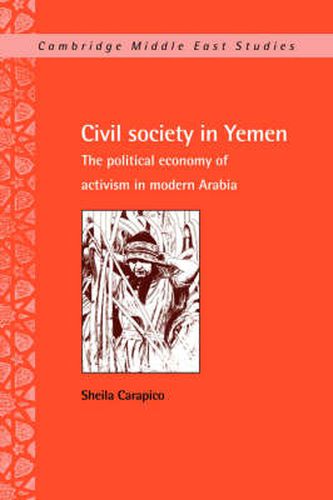Readings Newsletter
Become a Readings Member to make your shopping experience even easier.
Sign in or sign up for free!
You’re not far away from qualifying for FREE standard shipping within Australia
You’ve qualified for FREE standard shipping within Australia
The cart is loading…






Sheila Carapico’s book on civic participation in modern Yemen makes an authoritative, pathbreaking contribution to the study of political culture in the Arabian peninsula. Relying on in-depth documentary and field research, the author traces the political dynamics of the last fifty years, that culminated in Yemeni unification, focusing on efforts to develop the political, economic, and social structures of a modern, democratic government. Her wide-ranging analysis of the legal, institutional, and financial aspects of state building and of popular dimensions of political liberalization, protest, and participation challenge the stereotypical view of conservative Arab Muslim society. The political economy approach to the study which reveals a surprising degree of ‘activism in Arabia’ also helps to interpret the nature of civil society from a broad theoretical perspective. This is an important book which promises to become the definitive work on twentieth-century Yemen.
$9.00 standard shipping within Australia
FREE standard shipping within Australia for orders over $100.00
Express & International shipping calculated at checkout
Sheila Carapico’s book on civic participation in modern Yemen makes an authoritative, pathbreaking contribution to the study of political culture in the Arabian peninsula. Relying on in-depth documentary and field research, the author traces the political dynamics of the last fifty years, that culminated in Yemeni unification, focusing on efforts to develop the political, economic, and social structures of a modern, democratic government. Her wide-ranging analysis of the legal, institutional, and financial aspects of state building and of popular dimensions of political liberalization, protest, and participation challenge the stereotypical view of conservative Arab Muslim society. The political economy approach to the study which reveals a surprising degree of ‘activism in Arabia’ also helps to interpret the nature of civil society from a broad theoretical perspective. This is an important book which promises to become the definitive work on twentieth-century Yemen.